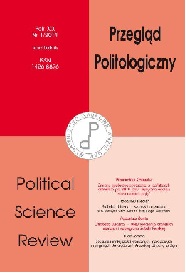Kurdowie we współczesnych społecznościach Bliskiego Wschodu
Kurds in the Contemporary Societies in the Middle East
Author(s): Maria GiedzSubject(s): Politics / Political Sciences
Published by: Uniwersytet Adama Mickiewicza
Keywords: Kurdistan; Kurds; Kurdistan Region; Barzani; Middle East; Syrian Revolution
Summary/Abstract: The Middle East is a region characterized by huge diversity in terms of religion and ethnicity, as well as nationality. In this Middle Eastern melting pot of societies the Kurds stand out as a nation estimated at 45 million people who were ignored until the tragedy that occurred in the spring of 1991. Before the American intervention in Iraq, the Kurds in all four countries in which they happened to live, were treated as second class citizens. 2003 was a breakthrough, marking the beginning of the Kurds being perceived as a nation which has a right to self-determination. The events after 2003 led to the bizarre situation, in which a marginal population became an important partner on the international political arena. In Iraq the Kurds play the role of a catalyst among discordant Muslim groups. In the context of the „Arab Spring” and events in Syria, they are a bargaining card for the Turkish and Syrian governments, but simultaneously the Kurds are entrusted with integration activities. An extremely interesting situation has arisen. This formerly humiliated community has started to become a respected nation which is able to resolve conflicts in the Middle East.
Journal: Przegląd Politologiczny
- Issue Year: 2014
- Issue No: 1
- Page Range: 283-298
- Page Count: 16
- Language: Polish

